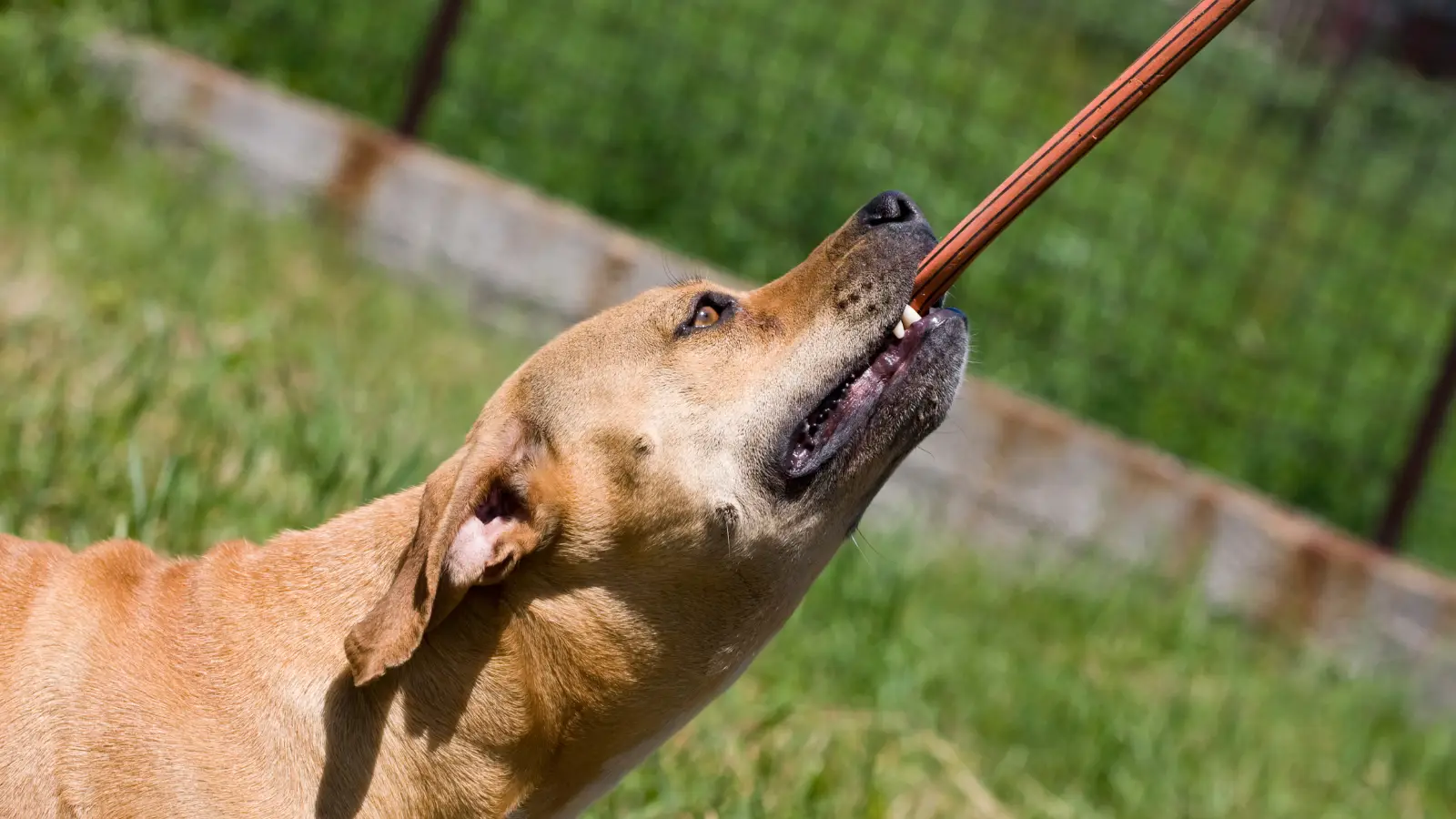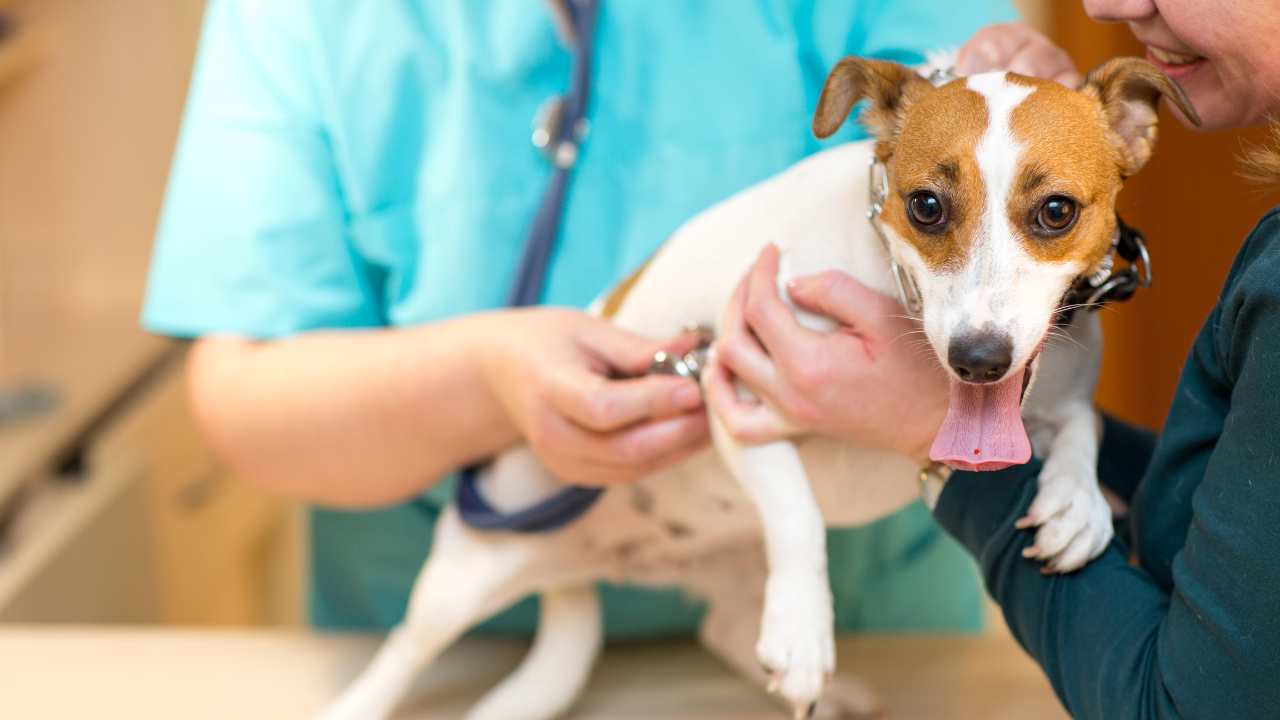
Why Does My Dog Snore Like a Human?
Your dog snores like a human because airflow is partially blocked in their nasal passages or throat during sleep, often due to anatomy, sleeping position, allergies, obesity, or underlying medical conditions.
If you’ve ever been woken up in the middle of the night and noticed your Dog Snore Like a Human, you don’t know that happening. Why does my dog snore like a human?
Don’t worry, you’re not alone. As a dog owner, I know how weird—and funny—it can be.
One minute they’re curled up peacefully, the next they’re rattling the walls with loud snores that sound like a human. But have you ever wondered why your dog snores that way?
Here I will break it down in the simplest way possible. We’ll talk about what makes dogs snore, when it’s normal, and when it might be a sign of something more serious. Whether you have a little pug, a chubby Labrador, or a sleepy old mutt, this guide will help you understand what happens when your furry friend sees logs at night.
Let’s dive in—and don’t worry, we’ll keep the science simple.

Quick Explanation: What Causes Dog Snore Like a Human?
Dogs snore for the same basic reason humans do—something blocks the air as it moves through their nose or throat while they sleep. That blockage can make the soft tissues in their throat vibrate, which creates that snoring sound we all know too well.
Most of the time, it’s nothing serious. It could be your dog’s sleeping position, the shape of their face (especially in flat-faced breeds like Pugs or Bulldogs), or even a bit of dust in the air. Like people, dogs also go through deep sleep stages, and their muscles relax during this time. When the muscles around the throat relax too much, snoring happens.
But here’s the thing—some snoring is regular, and some could be a sign of a health issue. That’s why it’s good to understand the different reasons behind it. And that’s what we’re going to explore next.
Top Reasons Why Your Dog Snors Like a Human?
So now you know that Dog Snore Like a Human is usually caused by something blocking the airflow. But let’s look a little deeper at why this happens. Some dogs are built to snore more than others, while some start snoring because of changes in their body or environment. Here are the most common reasons your dog sounds like a sleepy grandpa at night:
1. Their Breed (Especially Flat-Faced Dogs)
If you’ve got a Bulldog, Pug, Boston Terrier, or Shih Tzu, you already know they make all sorts of funny noises. These breeds are called brachycephalic, which means they have short noses and flat faces. Their airways are more crowded than other dogs, so snoring is common, even when they’re wide awake sometimes!
Fun Fact: This is similar to how humans with sleep apnea snore.
2. Sleeping Position
Some dogs sleep funny ways—like flat on their back with paws in the air. When they do this, their tongue and throat can shift and block airflow, leading to loud snoring. It’s like how humans snore more when they sleep on their backs.
Encourage your dog to sleep on their side to see if it helps.
3. Weight or Obesity
If your pup has gained a few extra pounds, it can lead to louder snoring. Extra fat around the neck puts pressure on the throat and narrows the airway, making breathing harder during sleep.
Keeping your dog at a healthy weight is good for its snoring, heart, joints, and overall health!
4. Allergies or Irritants in the Air
Just like humans, dogs can have allergies to dust, pollen, mould, or even strong smells like cleaning products or smoke. These irritants can inflame their airways and cause snoring.
If your dog only snores at certain times of year or after you clean, allergies might be the reason.
5. Nasal or Throat Problems
Sometimes, snoring is caused by infections, nasal congestion, or polyps in the nose or throat. These issues block airflow and lead to noisy breathing. If your dog suddenly starts snoring or their snoring sounds different, it’s worth checking with a vet.
When Should You Worry About Your Dog’s Snoring?
While snoring is usually harmless, there are times when it could be a sign that something’s not quite right. If your dog’s snoring seems sudden, different, or is accompanied by other unusual symptoms, it might be time to take a closer look.
Here are a few things to watch out for that might mean it’s time to visit the vet:
1. Loud, Gasping Snoring
If your dog’s snoring is so loud that it sounds like they’re gasping for air, this could be a sign of sleep apnea or a severe airway blockage. While snoring is regular, gasping for air or choking sounds are not. This is especially concerning if it happens regularly during the night.
2. Chronic Coughing or Wheezing
If your dog is snoring, coughing, wheezing, or showing signs of laboured breathing, it could have a respiratory infection or another health problem affecting its airways.
Tip: Keep track of any coughing episodes and mention them to the vet. This helps with diagnosis.
3. Sudden Onset of Snoring
If your dog suddenly starts snoring like a human when it has never done so before, it could be a sign of an infection, allergies, or even a nasal polyp. If it’s also acting sluggish or showing signs of discomfort, it’s time for a vet check.
4. Daytime Fatigue
Snoring can affect your dog’s sleep quality, just like it can affect ours. If your dog snores loudly and seems unusually tired during the day, it might be because they’re not getting a restful sleep. Look out for signs like excessive yawning, irritability, or a lack of energy.
5. Changes in Behaviour or Appetite
If your dog’s snoring is paired with changes in behaviour (like acting more grumpy or reclusive) or a sudden loss of appetite, it could point to an underlying health issue. This is especially true if the snoring is accompanied by breathing problems or a stuffy nose.
So, What Should You Do?
If any of the above signs sound familiar, don’t panic! It’s always a good idea to consult your vet for peace of mind. They can do a quick exam and determine whether your dog’s snoring is part of their personality or if it’s time for treatment.
How to Reduce Your Dog’s Snoring?
If your dog’s snoring keeps you up at night (or makes you giggle), you can try a few simple things to help reduce it. Most of the time, snoring is harmless, but if you’d like to help your dog breathe easier, here are some tips:
1. Encourage a Better Sleeping Position
Like humans, dogs tend to snore more when they sleep on their backs. To help reduce the snoring, try encouraging your dog to rest on its side.
You can even get them a comfortable dog bed that supports side sleeping, or gently move them onto their side if you catch them snoring on their back.
2. Manage Their Weight
Excess weight around the neck and throat can contribute to snoring. If your dog carries a little extra weight, consider starting them on a healthier diet and more exercise.
Tip: Consult your vet for a safe weight loss plan tailored to your dog’s needs.
3. Control Allergens and Irritants
If your dog’s snoring is due to allergies, try to reduce common allergens in your home. You can:
Use an air purifier to filter out pollen, dust, and other irritants.
Avoid smoking indoors or using harsh cleaning chemicals that might trigger their allergies.
4. Invest in a Good Air Humidifier
If your dog is snoring because of dry air or nasal congestion, a humidifier might help keep their nasal passages clear. It adds moisture to the air, easing breathing, especially in the colder months.
5. Regular Vet Check-ups
Keep up with your dog’s regular vet visits. If your dog’s snoring seems to be getting worse or is accompanied by other symptoms, your vet can check for issues like nasal polyps or respiratory infections.
Sometimes, minor medical treatments (like nasal drops or anti-inflammatory meds) can reduce snoring.
6. Consider Surgery (For Brachycephalic Breeds)
For dogs with extreme snoring due to brachycephalic syndrome (like Pugs or Bulldogs), surgery might be necessary to widen their airways. While this approach is more extreme, it can significantly relieve severe cases.
Always talk to your vet about the pros and cons before making any decisions.
Final Tip: Patience Is Key!
Every dog is different, so finding what works best for your furry friend may take some time. Keep an eye on their snoring patterns and make changes gradually. And remember—if the snoring doesn’t seem to be causing any harm, it might just be another quirky thing your dog does to keep you on your toes!
Snoring in Puppies vs. Older Dogs
Snoring isn’t just something that happens to adult dogs—it can also affect puppies and older dogs. However, the reasons behind snoring can differ depending on your dog’s age. Let’s break it down!
Snoring in Puppies
When puppies snore, it’s usually because of their small, developing bodies. Puppies have smaller airways and sometimes more relaxed muscles, which can lead to snoring as they sleep. Like humans, puppies go through deep sleep stages (including REM sleep), and their muscles can relax enough to cause snoring sounds.
In general, puppy snoring is regular and typically doesn’t last forever. Dog Snore Like a Human to lessen as they grow and develop muscle tone and body shape. However, it’s worth watching if your puppy’s snoring seems extra loud or comes with other symptoms like trouble breathing.
Tip: If your puppy snores a lot, it could be because it’s still growing and adjusting to life. But if it’s bothering you, try adjusting its sleep position or using a humidifier.
Snoring in Older Dogs
Older dogs, on the other hand, might snore more as they age due to a few different reasons:
Muscle Weakness: Like humans, dogs lose muscle tone as they age, including the muscles in their throats. This can lead to increased snoring.
Health Issues: Older dogs are more likely to develop health issues like arthritis, obesity, or even respiratory problems, which can contribute to snoring.
Dental Problems: Older dogs are also more prone to dental issues, which can affect their snoring if linked to oral health.
If your older dog suddenly starts snoring or becomes louder or more frequent, it’s always a good idea to check them with a vet to rule out any underlying health problems.
Key Differences to Remember:
Puppies tend to snore due to their developing bodies, and it usually goes away as they grow.
Older dogs may snore more due to changes in their health, muscle tone, or the development of age-related conditions.
Conclusion: Is Your Dog’s Snoring Normal?
So, why does your dog snore like a human? Whether it’s their breed, sleeping position, weight, or allergies, there are many reasons why your furry friend might make those adorable (and sometimes loud) snoring sounds. For most dogs, it’s totally normal and just part of their personality.
However, if you notice any changes in their snoring patterns, or if it’s accompanied by other concerning signs like coughing, gasping, or extreme fatigue, it might be time to get a vet’s opinion.
By monitoring their health and making a few adjustments (like encouraging better sleep positions or managing their weight), you can help your dog sleep better and maybe even reduce the snoring.
Remember, every dog is different, and a little snoring here and there is often another way to remind us how unique and lovable they are.
At Petiliar, we will find much information related to dogs
I hope this helps you understand why your dog snorts, snores, or makes funny nighttime sounds! If you have any tips or questions, please post them in the comments below. Sweet dreams to both you and your snoring pup!



